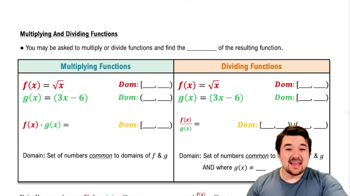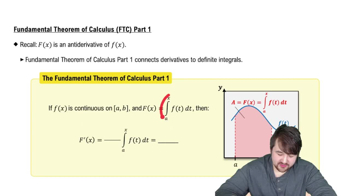Roots (Zeros)
a. Plot the zeros of each polynomial on a line together with the zeros of its first derivative.
iii. y = x³ − 3x² + 4 = (x + 1)(x − 2)²
 Verified step by step guidance
Verified step by step guidance Verified video answer for a similar problem:
Verified video answer for a similar problem:



 5:53m
5:53mMaster Finding Differentials with a bite sized video explanation from Patrick
Start learning